Rifat Ara Shams
AI for All: Identifying AI incidents Related to Diversity and Inclusion
Jul 19, 2024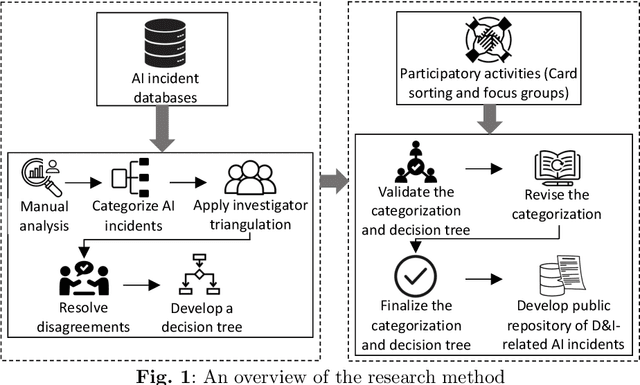

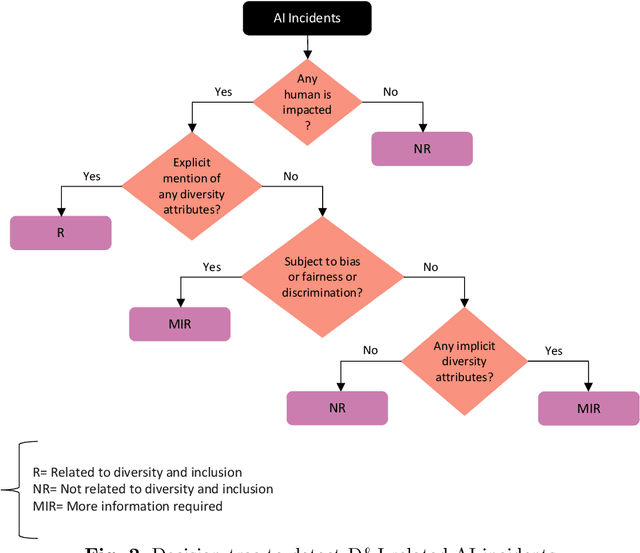

Abstract:The rapid expansion of Artificial Intelligence (AI) technologies has introduced both significant advancements and challenges, with diversity and inclusion (D&I) emerging as a critical concern. Addressing D&I in AI is essential to reduce biases and discrimination, enhance fairness, and prevent adverse societal impacts. Despite its importance, D&I considerations are often overlooked, resulting in incidents marked by built-in biases and ethical dilemmas. Analyzing AI incidents through a D&I lens is crucial for identifying causes of biases and developing strategies to mitigate them, ensuring fairer and more equitable AI technologies. However, systematic investigations of D&I-related AI incidents are scarce. This study addresses these challenges by identifying and understanding D&I issues within AI systems through a manual analysis of AI incident databases (AIID and AIAAIC). The research develops a decision tree to investigate D&I issues tied to AI incidents and populate a public repository of D&I-related AI incidents. The decision tree was validated through a card sorting exercise and focus group discussions. The research demonstrates that almost half of the analyzed AI incidents are related to D&I, with a notable predominance of racial, gender, and age discrimination. The decision tree and resulting public repository aim to foster further research and responsible AI practices, promoting the development of inclusive and equitable AI systems.
Challenges and Solutions in AI for All
Jul 20, 2023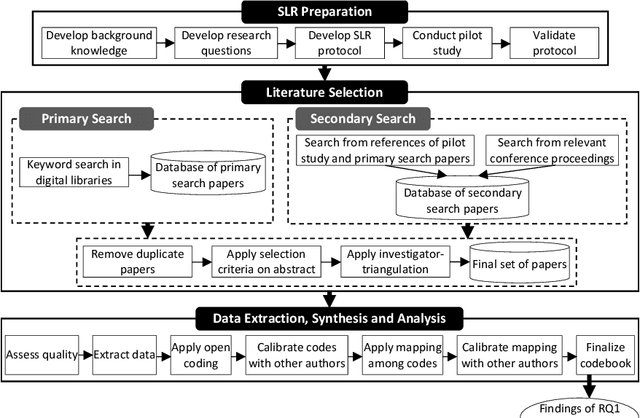
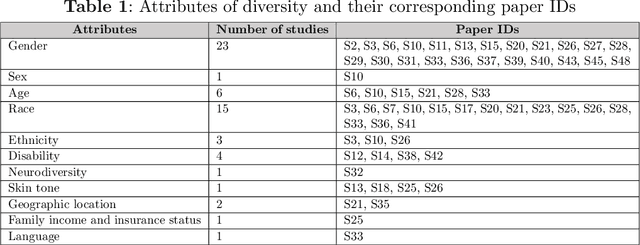
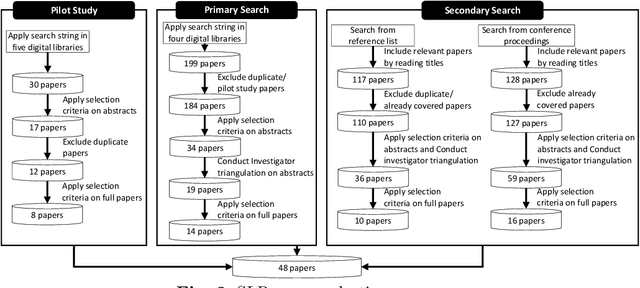
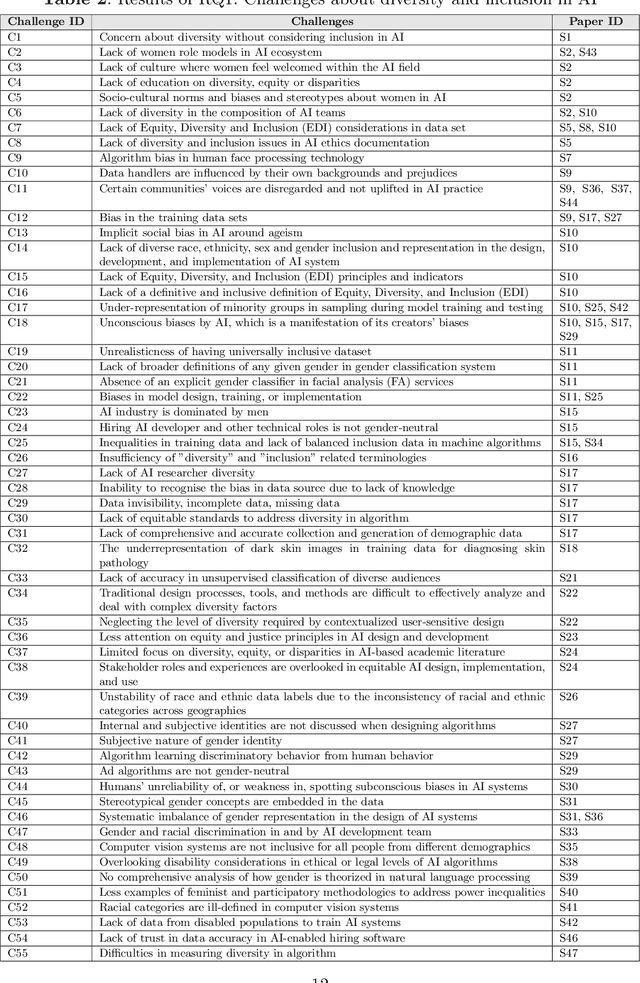
Abstract:Artificial Intelligence (AI)'s pervasive presence and variety necessitate diversity and inclusivity (D&I) principles in its design for fairness, trust, and transparency. Yet, these considerations are often overlooked, leading to issues of bias, discrimination, and perceived untrustworthiness. In response, we conducted a Systematic Review to unearth challenges and solutions relating to D&I in AI. Our rigorous search yielded 48 research articles published between 2017 and 2022. Open coding of these papers revealed 55 unique challenges and 33 solutions for D&I in AI, as well as 24 unique challenges and 23 solutions for enhancing such practices using AI. This study, by offering a deeper understanding of these issues, will enlighten researchers and practitioners seeking to integrate these principles into future AI systems.
 Add to Chrome
Add to Chrome Add to Firefox
Add to Firefox Add to Edge
Add to Edge